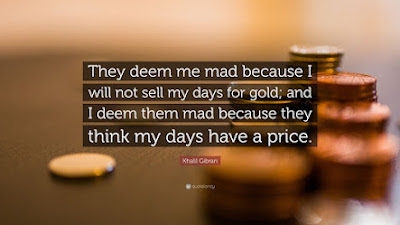"Decline of Empire:
Parallels Between the U.S. and Rome, Part V"
by Doug Casey
"Despite all our similarities with Rome, and even equipped with our understanding of why Rome collapsed, we can’t avoid Rome’s fate just by trying to avoid Rome’s mistakes. Yes, we have an analogue of early Christianity chewing away at our civilization’s foundations. And yes, we have a virtual barbarian invasion to contend with. But there’s another factor, I think, that worked against the Romans and is working against us… one Gibbon didn’t consider.
We can’t evade the second law of thermodynamics, which holds that entropy conquers everything and that over time all systems degrade and wind down. And that the more complex a system becomes, the more energy it takes to maintain it. The larger and more complex, interconnected, and interdependent it becomes, the more prone it is to breakdown and catastrophic failure. That includes countries and civilizations.
The Romans reached their physical limits within the confines of their scientific, engineering, economic, and other areas of knowledge. And the moral values of their civilization, their founding philosophies, were washed away by a new religion. We may reach our technological limits. And our founding values are certainly being washed away.
Our scientific knowledge is still compounding rapidly - because more scientists and engineers are alive today than have lived in the previous history of mankind put together. That statement has been true for at least the last 200 years - and it’s been a gigantic advantage we’ve had over the Romans. But it may stop being true in the next few generations as the population levels off and then declines, as is happening in Japan, Europe, China, and most of the developed world. It’s compounded by the fact that U.S. universities aren’t graduating Ph.D.s in engineering, mathematics, and physics so much as in gender studies, sociology, English, and J.D.s in law. As it degrades, the U.S. will not only draw in fewer enterprising foreigners, it will export its more competent natives.
My solution to America’s decline and fall? The solution for declining civilizations is less command and control, less centralization, and less legal and regulatory complexity. And more entrepreneurship, free minds, and radically free markets. Unfortunately, although a few might agree with that, it’s not going to happen. Not even if most people agree.
Why? Because there are immense governmental institutions that exist, with many millions of employees - at least 20 million in the U.S. And many tens of millions more in their families and throughout the private sector that depend on them. And many tens of millions more that rely directly on the state for Social Security, Medicare, Medicaid, and other direct payments. And millions more associated with quasi-state institutions like NGOs, think tanks, law firms, lobbying groups, and the like. The parasitic mechanism of the state has become key to their survival. Even if many in their ranks see the dysfunction now planted in America, they’re hardly going to break their own well-filled rice bowls.
Every institution, like every living thing from an amoeba on up, has one thing in common: they all obey a prime directive - survive! They will try to do so at any cost to society at large. They intuitively know that, as a corollary, you either grow or you die. So you’re not going to see any dysfunctional organization dissolve itself. It’ll keep trying to grow until it self-destructs or an outside force destroys it. Beyond a certain stage, any serious reform is impossible. In the case of the U.S., it’s now host to a completely inoperable cancer, as the government and its satellites grow faster than ever, while the productive economy contracts.
The second law of thermodynamics is a concept of physics, but it has applications in most areas of human action, including what’s been called "imperial overstretch" - the point where the resources gained from growing is less than the energy expended in the process. Rome ran up against imperial overstretch. So did Alexander, Napoleon, and Hitler. The Spanish, French, British, and Soviet empires all did as well. It’s a natural thing with all living organisms, to try to grow until they can’t grow any further, until their energy expenditures exceed their inputs, and/or they’re too large and complex to be controllable, at which point they either rot from within or fall to external predators. It’s as though the Peter Principle applies to all of nature: everything rises to its level of incompetence, at which point it becomes vulnerable.
But does it really matter if the U.S. declines? It’s already morphed from America - which we all loved - into something else. And it’s morphing even more in the wrong direction, at an accelerating rate, as did Rome. The U.S. is declining in all the areas I’ve touched on. But it’s not unique; it’s following the course of all states and all things.
Rome was arrogant and thought it was unique, the center of the world, and eternal. Just like the U.S. Or China, for that matter.
Rome was corrupt; it departed from the values that made it great and so deserved to collapse. The U.S. is increasingly corrupt. That’s completely predictable, for exactly the reason Tacitus cited - a profusion of laws. In market-based systems, corruption is rare and occasional. But in large, complex, politically based systems, it’s not only commonplace, it’s salubrious, because it allows workarounds. Corruption becomes like an oxygen tank to an emphysema victim - awkward but needed. Rulers, however, never attempt to cure the underlying disease by simplifying the complex systems they’ve built. Instead they pass more laws, making the system ever more like a Rube Goldberg machine, with even more complexities and inefficiencies. That’s always counterproductive, since compounded complexity makes the eventual collapse even worse. And harder to recover from. And more nearly inevitable.
Conclusion: So what’s your takeaway from all this, assuming you agree with my thinking? There are several possibilities to consider, based on what we know about Rome.
One is that you stay put as civilization declines around you and barbarians - of whatever kind - take over. That may be your only, or best, option—perhaps because of your age or financial circumstances or family obligations. If so, it nonetheless may be a mistake to stay in Detroit or Chicago, because there could be easy and much better alternatives. We have evidence that life in parts of the Roman Empire - parts of rural Portugal and Mauretania, for instance - actually improved even as things were collapsing in Italy, Britain, and Gaul, largely because the taxation and regulation infrastructures collapsed, but the roads, aqueducts, and cities stayed intact. So you might improve your own situation considerably just by moving down the road a bit.
A second possibility is that you consider what Priscus and Salvian said and get away from the storm’s epicenter by leaving the empire.
A third is more philosophical: you simply recognize that the rise and fall of societies has been going on since Day One. Don’t be too stressed by mega events. Life isn’t just full of problems: it is problems. We’re looking at a giant crisis, but a crisis is a combination of both danger and opportunity. Look at the bright side while you try to dodge the negative effects. See it as an adventure, an education, and even free entertainment.
I hope seeing America reflected in the distant mirror of Ancient Rome helps to put things in perspective"
























